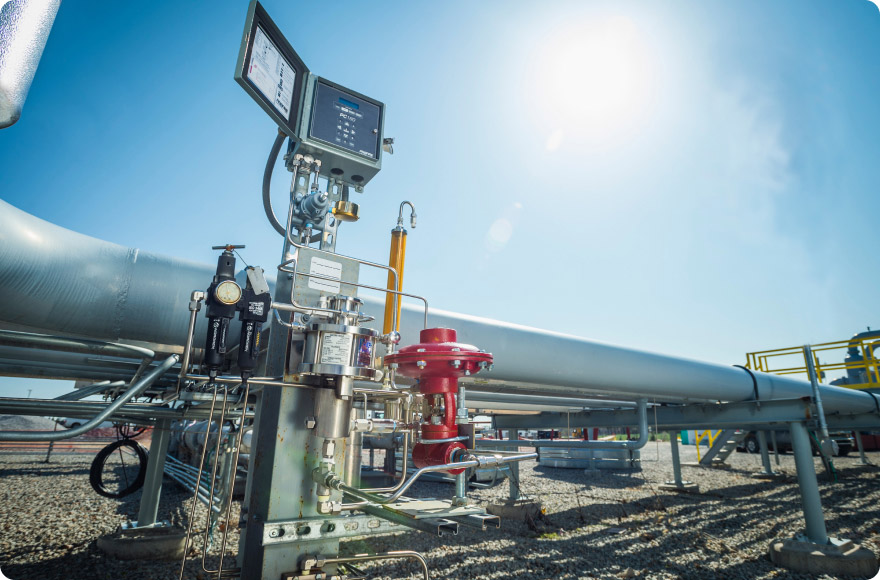In the Exploration and Production industry, methanol is considered a superhero, due to its dehydrating properties. It is very useful in mature wells where the reservoir has reached the oil water contact point. In addition to dehydration, methanol prevents frost from developing at low temperatures by lowering the freezing point of liquids. This enables crude oil to flow in colder climates by not having water constituents freezing up resulting in increased oil production.
Nevertheless, pumping unnecessary amounts of methanol down a well soon exceeds the operating budget of upstream operators, thus there is a need to constantly track the ambient temperature. When it reaches a set temperature threshold, methanol is injected, and when the threshold is met, it is stopped. This practice has its disadvantages. First, it is dependent on human decision making, which may be unreliable or inconsistent. Secondly, the amount of methanol needed when the temperature dips is difficult to determine. It might still lead to waste if too much is injected or might cause a production drop if too little is injected.
This is where chemical management systems (CMS) including Profire’s PC180 become the better choice for onsite monitoring. They electronically control and monitor systems that use temperature-based injections, by constantly adjusting the injection rate with the changing ambient temperature. This means when temperatures start to dip a CMS will start injecting methanol or when temperatures rise it will be lowered until it exceeds the threshold.
Some chemical management systems can be controlled remotely through the Modbus using the operator’s SCADA (Supervisory Control and Data Acquisition) system. From the comfort of the control room the operator can change or override the injection rate of any pump without the need to visit the well site in frigid temperatures or expose themselves to other field hazards. It also reduces transportation costs, and time loss as required visits to the well site are reduced.
Using the right CMS for methanol injection is a complete solution to the aforementioned temperature-based chemical injection problems. It saves chemical costs by automating the process efficiently while reducing chemical handling hazards. The remote-control option is especially useful in cold winter conditions.
For more information on automated chemical injection systems contact us.
